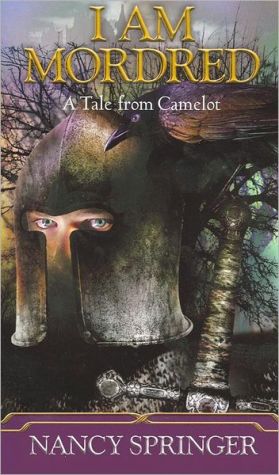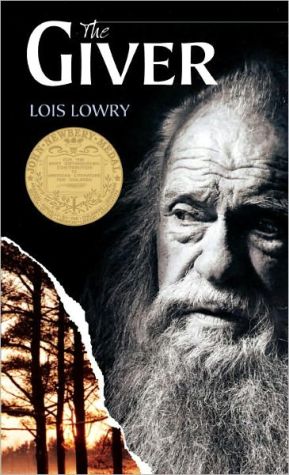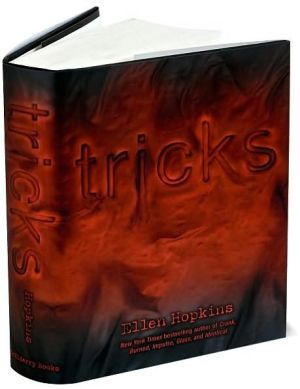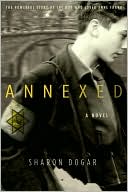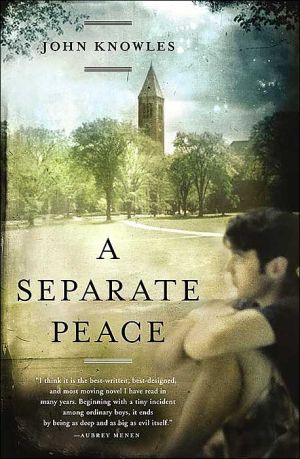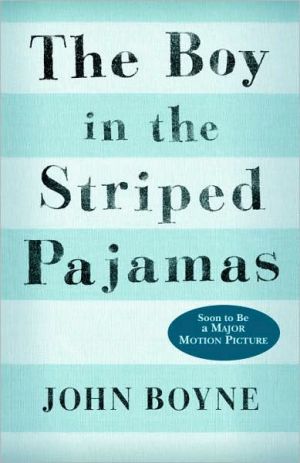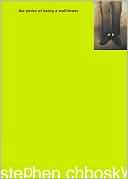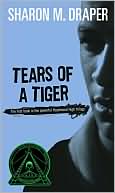I Am Mordred (Tale of Camelot Series #1)
What will a person give to forsake his destiny? From his very incarnation, Mordred has been a pawn in Camelot’s history. Foretold by Merlin that he will grow up to kill his father, the beloved King Arthur, young Mordred struggles with his fate, loathing the great king who tried to kill him as a baby, yet journeying to Camelot where he learns to serve and idolize the legendary leader. Torn between feelings of love and hate, Mordred yearns to make peace with Arthur, who still refuses to...
Search in google:
What will a person give to forsake his destiny? From his very incarnation, Mordred has been a pawn in Camelot's history. Foretold by Merlin that he will grow up to kill his father, the beloved King Arthur, young Mordred struggles with his fate, loathing the great king who tried to kill him as a baby, yet journeying to Camelot where he learns to serve and idolize the legendary leader. Torn between feelings of love and hate, Mordred yearns to make peace with Arthur, who still refuses to acknowledge him. But Mordred is determined to have peace at any price-even if it costs him his soul. In I Am Mordred, one of the most fascinating and misunderstood heroes of Arthurian lore comes to life in an epic fantasy for Camelot fans. Nancy Springer lives in Dallastown, PA.Publishers WeeklyIn a starred review, PW wrote, "Springer reworks Arthuriana to craft an original tale resonant with archetypal themes of love, loss, betrayal and reconciliation." Ages 12-up. (Jan.)n Copyright 2001 Cahners Business Information.
Chapter One\ When I was a baby, my father tried to kill me.\ I am Mordred, speaking to you from the wind with a raven's thin black tongue. I am Mordred, and it is no easier to say now than it ever was. Even hundreds of years ago, when I was human and young, when I first looked wide-eyed upon Camelot, it was hard to be who I was: Mordred, the shadow on all that shone, the bad seed.\ Because I am Mordred, my father placed me naked in a coracle-a frail cockleshell of a boat-and cast me adrift on the sea.\ I was too young to remember the days of starvation, the nights of cold. I do not remember my own crying. And I did not at first know that I was Mordred-and I did not at first think to hate my father, because my fishermother taught me no hatred. While she told me no lies, she kept from me the whole truth of those harsh days. Here is the way she would tell the tale to me:\ "Once upon a time," she would say, "there was a poor common woman who was very unhappy."\ "That was you, Mama!" I bounced in my bed until the straw rustled, for I had heard this tale many times in my six years, the true amazing tale of myself, and I loved it. She had told it to me almost every day since I could remember.\ Her round brown face would crinkle with a smile as she went on, pretending I hadn't spoken. "A poor fisherman's wife. She was unhappy because her baby had died, and she had waited so long, and then to lay the poor little stranger in the ground . . . well, it was hard. The milk stung in her breasts and the tears stung in her eyes and she could not think of food or eating; she sat by the cold hearth and cried. But then-what do you think happened?"\ "The fisherman found me!" I shouted.\ "Shhhh. Softly, little one. Yes, it was-it was uncanny." Her smile turned rapt, and in back of her words I grew aware of the vast sea sighing and stirring and muttering like a sleeper outside our window. "Like a miracle. The good fisherman walked down to see to his nets, and there, beached almost at his door, what should he see but a fine coracle. And in the coracle what should he find but a wee naked baby boy, cold and hungry but still alive."\ "That was me!"\ "Yes, dear one, that was you." Now there was a bright glimmer in her smiling eyes. "The good fisherman picked you up and carried you against his chest, under his tunic to warm you, and he hurried to me-"\ From his place by the fire my fisherfather grumbled, "I should have seen to the coracle first."\ "Hush, you." Fishermother spoke gently because she knew he was teasing. He was a dank, silent man, as crusty as the salt on his nets, but she had an understanding with him. She went on with the story. "He hurried to me where I sat weeping and he gave you into my arms, poor wee babe, so weak and starved that you could barely cry, yet when I offered you the breast you suckled strongly. Like a miracle. And when he turned again to the sea the coracle was gone."\ "As if it had never been."\ "As if it had never been, yes. Uncanny."\ My fisherfather growled, "The sea took it back, that's all."\ "But the sea was calm. And never a splinter of that coracle did we see again." My fishermother spoke almost in a whisper. "Old Lyr had heard me crying, I think." Lyr was the god of the sea, who allowed Fisherfather's boat on his wide slumbering chest in the summer but shook the hut with purple storms in the cold of the year; I knew the power of Lyr. "Old Lyr had grown weary of hearing my crying and sent you to dry my tears, little one."\ I lay quieted by the wonder of the story.\ "Now go to sleep, Tad." My fishermother patted me. She called me Tad because I had come to her naked like a wriggling little tadpole from the sea. "Oh, look, there is the mark of Lyr's kiss!" She always made a show of discovering it, a brownish mark like an X behind my left ear. She kissed me there. "Sleep in peace."\ And so I did. The murmuring of the sea was my lullaby, and my belly was full-I never went hungry. "The haddock leap into the nets," my fisherfather said sometimes in wonder "Thank the goodliness of our blessed King Arthur" For it was the soul-honor of the King that made the fish fat and plentiful. But I did not dream of Arthur, King in Camelot, not in those periwinkle days when I was Tad. The hut was warm and the sea breathed marvels in my ear, and in my sleep I dreamed sometimes that the waves rocked me, in their watery arms. I did not know myself to be bad seed cast away, and I did not think to wonder who was my real father or my real mother, for my fishermother had told me that I was a gift from Lyr. The sea was my father and my mother. And in the morning there would be warm white chowder to eat, and all day I would leap on the rocks and wade the shallows and run with the players on the gravel shore, and the sea was vast and the sky vast all around me, and I stood a god's gift over the sea amidst the sky, and the Forest Perilous was only a low blue mystery in the distance. And at night there would be kippered herring for supper and the warmth of Fishermother's arms and my story at bedtime, and I was happy.\ It is instructive, looking back now that I am no longer mortal, instructive and curious to remember how it was to be happy.\ All changed, of course, before I was strong enough or ready, on a summer day when a lady in green came riding on a great gray horse out of the Forest Perilous.\ I saw her approaching, for I was gathering birds' eggs on the rocks, and as I squatted by the basket I glanced up and saw the horse shining like a mussel pearl against the darkness that was the forest. Speckled eggs dropped from my hands and cracked open at my feet. Crouching, I gawked at the horse and rider, for I had never seen such a thing, though I had heard of lords and ladies in the stories my fishermother told me. But to really see—it was beyond believing. A lady, a real lady, riding past our hut-\ I left my basket and ran to tell my fishermother to come out and see.\ In a moment I stood before the hut, so breathless, not from running but from wonder, that I could barely speak. But Mama was already at the door, staring.\ And the lady sent the horse at a long floating trot straight toward us.\ So this was a lady. I did not yet know enough to find it odd that she rode alone. She sat half sideward on the horse, and her gown flowed down like leaf-green water around her feet, covering them; I thought at first that she might not have feet, she seemed so different from my stout brown fisher- mother standing in the hut's low doorway. The lady's skin lustered as smooth and pale as moonfight. Her hair the color of a red hawk lay in sleek parted wings over her ears, then swept into plaits bound with crisscross ribbons of the same green as her shimmering gown, ending in clasps of gold. The plaits hung so long they lay like whiplashes against the horse's flanks, making it snort as it trotted toward us, a great dapple-gray horse-any horse would have seemed huge to me, for I had never seen one, but in truth this was a courser, a charger with massive shoulders and a mighty arched neck, a destrier, not a lady's gentle palfrey. My nose scarcely reached higher than the horse's knees as it halted before me.\ There I stood in my coarse brown tunic, bare-legged, a child with a mouth like an O, agape at the sight of the lady upon the great gray horse, gazing up at her face-at her skin like moonlight, her eyes dark and secret, like deep pools at midnight-I looked up at her, and she looked back at me and smiled, a merry, tender smile, as if we shared a jest.\ "Well met, Mordred," she said.\ My fishermother wept even though Nyneve gave her a purse of gold.\ That was the lady's name, Nyneve, and she was a sorceress. The snorting charger stood as still as the dapple-gray moon in the sky when she alighted and touched it on the forehead. She touched my fishermother's rough hair and said, "It is not so bad. I feel life in you; you are with child again. You will have a fine son and miss this one the less."\ I did not yet understand. Nor did I understand how or why she called me Mordred, though I sensed at once that it was truly my name. Looking into Nyneve's eyes as she said it, I had recognized the name the way I recognized sharp flints under my bare feet.\ "But why not leave the child here?" my fishermother cried. "They cast him away, they do not want him. No one has to know."\ "But I know," Nyneve said. "And if I discovered him, so can Morgan le Fay."\ I did not know who Morgan was. I knew only that a fay was a sorceress of the otherworld. I heard what Nyneve was saying, but no one had ever hurt me—or not within my memory-so I did not yet feel afraid.\ I was still gazing at Nyneve. She wore no belt, but a green baldric hung from her left shoulder across her breast to her right hip, and from the baldric hung a golden dagger with a glimmering dark stone in the hilt. I had never seen such a fine dagger. Already I wanted one like it when I grew up.\ "He will be safer in the castle at Lothian," Nyneve said.\ My fishermother sank to her knees, weeping. But Nyneve turned to me and lifted me lightly and placed me upon the withers of the horse, amid the gray mane, which flowed heavily like rain down its neck. Then just as lightly she mounted. She gathered me onto her lap and said to my fishermother as she lifted the reins, "May the Lady, my mistress, ease your pain." And then we rode away.\ I was so taken by the golden dagger and the lady and the great gray steed that I did not weep or say farewell. Also, I did not understand.\ The courser surged and curvetted under us, ramping on- ward three times as fast as a man could walk. "Do you like to ride the horse, Mordred?" Nyneve asked me.\ "Yes."\ "You're a true noble." I heard a quirk in her voice as if she might laugh at me.\ "I am a noble?" I asked, astonished. Though I knew was the gift of Lyr to my fishermother, I had never thought otherwise than that I was a young churl, fit to run carefree by the sea.\ "You are more than noble," she said. Her voice was soft and made me think of wild roses, as did the softness of her pale pink mouth, as did her fragrance, light and fresh and free. "You are a king's son."\ It felt astounding at first but then fitting, that I, the gift of Lyr and sun of my fishermother's sky, was a prince. I sat taller on the horse, and Nyneve's moon-white hand curled around my narrow childish chest to restrain me.\ "What king?" I demanded.\ She hesitated.\ "Who is my father?" It was the first time in my life that I had thought to ask.\ "Softly, Mordred." Something troubled her quiet voice like wind over still water. "Softly. There are those who say you were born for ill. Those who might wish to kill you yet."\ That jarred me. For a moment I struggled for breath. "You must trust me," she said, her voice even softer. "I am one who hopes for good from you." She paused while I listened to the clashing of the horse's hooves and my own harsh breathing. Then almost in a whisper she said, "Perhaps the only one."\ That night we camped in the Forest Perilous.\ We rode until dark amid the twisted wych elms, the looming oaks heavy with druid vine, the black hemlocks. Up until the moment Nyneve's great gray steed carried me into the Forest Perilous, I had thought the world was made of sunshine and cloud sheen and open sky and open sea; where I lived-or where I used to live-trees grew not at all, but here they grew so thickly and so tall, oak, beech, rowan, hazel, that I could not see the sky. Something crashed away between the trees. Something cried out. Mazy trails led in all directions like tunnels, and within three strides I did not know where I was. That was the day the world closed in on me, dim and glass-green and labyrinthine, and-though I did not know it then-it was the world in which I would ride for the rest of my life. The Forest Perilous cloaked the kingdom from its stony northern shoulders down to Camelot and the sea, mantling it in shadow.\ Even as a bare-legged child I wanted to be brave and good, so I shivered but said nothing, In silence I rode where Nyneve and her courser carried me.\ Dim yellow sundown turned to gray twilight. In the hemlocks someone laughed. We rode on.\ Twilight turned to nightfall. Swaying in some wind I couldn't even feel, a tall elm groaned like a human. Perhaps it had been something not human that had laughed also. Or perhaps an outlaw. A dead branch thudded to the ground just behind us, the horse leaped forward. Somewhere a bird barked once, then was silent. Some tendril I could not see brushed my face. I pressed against Nyneve's chest, trembling.\ Nyneve stretched out one hand, and in her palm grew a flame to light the night. She held it there, yellow like a baby chick nesting in the cup of her hand, and she said, "Let us find a place to stop."\ She chose a dell encircled by sighing elms. "Fire first," she said as she slipped down from her mount and lifted me down to stand wobbly legged beside her. "Help me gather wood, Mordred." She held the flame in one hand while she heaped my arms with sticks, and then she knelt and laid the fire and lit it with a touch. When the campfire blazed, she closed her hand and the flame in her palm was gone. She unsaddled the horse and hobbled it, then sat by the fire and cuddled me against her side with her left arm and said, "Now be quite still, and I will cozen us some supper."\ I was terrified of her, I adored her, and my awe of her made my dread of the forest seem less. Fear had worn me out, and her warmth and the warmth of the fire comforted me-or perhaps she had put a small spell on me. I lay in her embrace and dozed. I awoke only when-\ I sat up and my eyes widened, I had never seen such a thing.\ A peacock, a shimmering blue peacock, squatted by our campfire with its long neck stretched down, its head on the ground, its golden eyes fixed on Nyneve. The firelight gilded the great fan of its tail feathers, lifted to salute her. She left my side, bent over the bowing peacock, took it in her soft white hands and with one easy stroke cut off its head with her dagger.\ She saw me gawking. "Go back to sleep, Mordred," she said, and I did so. At once.\ Some time later she awakened me and gave me roast peacock to eat and sweet purple berries and mushrooms the size of bread loaves.\ After we had eaten, Nyneve gave me her cloak for a blanket. Then, with no covering for herself except her green gown, she lay down on the other side of the fire from me and slept. But I could not sleep again. Night in the Forest Perilous echoed full of voices. I heard owls conversing, a fox's chuckle. The distant song of wolves. Somewhere, the dark buying of a hound-\ Nyneve sprang to her feet. 'To horse, Mordred, quickly!\ She tore the hobbles from the steed and vaulted onto it, hauling me up behind her, riding bareback and astraddle with her skirt flying around her knees as the charger sprang into a pounding gallop. I clung to her waist and she swayed over the horse's mane as we thundered through the Forest Perilous with the trees whipping and tearing at both of us in the darkness. I cried out, but no one heard me, for in that moment the night rang with the belling of hounds, many hounds, and the wind rose to a roar, and the trees creaked and groaned and lashed all around us as if they were no mightier than grass. The whirlwind tore the clouds, the moonlight flooded through, and I saw a great white stag leaping, leaping between the trees, its antlers shining like a golden crown. The horse stopped, or Nyneve halted it somehow by the power of her hand, and the stag surged past us, so close that I saw the flash of its wild eye white with terror. Just behind it swept a pack of black hounds like a storm cloud scudding across the ground. The stag leaped white into the black hemlocks and I saw it no more.\ The hounds plunged after it, gone in the night. All the Forest Perilous seemed as still as the moonlight now, with no sound but the baying of the hounds dying away.\ "I want you to remember what you have just seen," said Nyneve.\ I was shaking, not only with cold. 'Why?" I whispered, it was the first time I had dared to question her.\ But without answering me she turned the horse and sent it walking through the night.\ The dark song of the hounds sounded faintly across the wilderness, seeming to come from everywhere.\ Nyneve and I rode gently in the moonlight. She had said I was a prince, but I sounded not at all like a prince as I said to her, "I want to go home." My voice quavered.\ She said nothing, but reached forward and stroked the horse's mane, and under her hand the coarse hair plaited itself into a hundred fine braids, and from the tip of each braid sprang a golden bell. Then she reached back and touched her own green baldric, and it hung fringed with golden bells. As the destrier strode on, the bells spoke like angels singing, so that we rode in an enchantment made of their ringing, I could no longer hear the black hounds. Though the chill of the forest lay on my bare legs, I no longer shivered.\ But amid the ringing of Nyneve's bells I seemed also to hear the ringing of the bluebells clustered around the great heavy-mossed boles of the trees. And the ringing of bluebells is an omen.\ The gray horse walked through the silver night, and every stride took me farther from my home. I did not weep- already I wanted to be strong, a man, I had decided I would not cry-but I began to understand: I was never to see my fishermother again.
\ Publishers WeeklyIn a starred review, PW wrote, "Springer reworks Arthuriana to craft an original tale resonant with archetypal themes of love, loss, betrayal and reconciliation." Ages 12-up. (Jan.)n Copyright 2001 Cahners Business Information.\ \ \ \ \ Children's Literature\ - Marilyn Courtot\ What must it feel like to learn that your father had cast you adrift in the sea, hoping that you would die? To know that your very existence is a threat and that fate has decreed that you will kill your father, the great King Arthur, whom so many admire? Mordred himself is drawn to the king and he struggles daily to understand why he must be the instrument of his father's death. Is there nothing he can do, no way to shift the course of history? This is a compelling story, one that makes readers think. It is also filled with details of medieval life, and the not so honorable lives of the Knights of the Round Table and their great leader, King Arthur.\ \ \ VOYA\ - Mary Arnold\ In a haunting first-person narrative, Mordred, Arthur's bad seed, his bastard son by his half-sister, looks back on his struggle to free himself from the stigma of his birth and be accepted, even loved, on his own terms. Reminiscent of the redeeming psychological profile of Mary Stewart's The Wicked Day (Fawcett, 1984), this book lets readers listen to Mordred's voice and ponder with him the question of whether he is truly an evil, cunning threat to Camelot's peace or a pawn in a powerful game. Condemned to death by Merlin and cast adrift by his noble father, then rescued like Moses from the bullrushes, raised ignorant of his true heritage until the time is right for Arthur to be confronted by his fate, Mordred must come of age by coming to terms with the love/hate he feels for Arthur, great king and betrayer of his own blood. Can the power of fate be averted? Can one escape doing evil deeds by cultivating a brave and loyal heart? Will the power of love overcome the destiny of a hated name and prophecy? Filled with the stark violence of blood oaths and rivalries, mystical enchantments, and legendary characters, Mordred's story is the timeless tale of the struggle of good and evil and the changing faces of both. Springer's lyrical descriptions and the sword and sorcery will appeal to general fantasy readers as well as diehard Camelot fans. There is some focus on the role of women, both in the more general society of the period and as forces for strength or folly in Mordred's development. Seen in proof, Mordred's youth in the cover art should appeal to young adults also engaged in the journey to discover their place in family and society, struggling with the ties of heritage and their own dreams of possibility. VOYA Codes: 4Q 3P M J (Better than most, marred only by occasional lapses, Will appeal with pushing, Middle School-defined as grades 6 to 8 and Junior High-defined as grades 7 to 9).\ \ \ \ \ KLIATTTo quote from the review of the hardcover from KLIATT, September 1998: Not the place to begin with the Camelot tales, but this haunting story of Mordred, King Arthur's son, destined to become his father's murderer, adds a fascinating dimension to them. It begins as a young Arthur, knowing the prediction that he will be killed by his own son, orders the deaths of 40 male babies, his possible offspring. Since the theme of this story is whether or not we can change our fate, of course the one baby who survives is Mordred, the illegitimate son. Many details and characters are included in the 184 pages, which end with Mordred at 27 and the final battle. Merlin is here in a strange persona; Gawain and Garet are Mordred's half-brothers; the Lady of the Lake offers some respite; but two relationships prevail: that of King Arthur and Mordred, and that of Mordred and Nyneve, a sorceress who supports and sooths him, accompanying him everywhere as his beloved dog, Gull. The language of legend prevails, which Springer uses with great ability, and the themes are profound and challenging. Readers who like Camelot stories will eagerly read I am Mordred. KLIATT Codes: JS*—Exceptional book, recommended for junior and senior high school students. 1998, Penguin Putnam, 184p., \ — Claire Rosser\ \ \ \ \ School Library JournalGr 5-8Told in the first person, this is an involving and moving story. Mordred, the bad seed, the son of King Arthur and his sister, spends his youth learning who he is and then trying to deal with the prophecy made by Merlin that he will kill his father. Springer portrays Mordred as a troubled child who is plagued by his feelings of love and hate for Arthur. As a teenager, he seeks Camelot and tries to earn his father's recognition and acceptance, but eventually flees in a turmoil of emotion. The sorceress Nyneve tries to help him to fight his fate. She cannot protect him from Merlin, however, who forces Mordred to look at a vision of the future. Distraught, Mordred begs Arthur to hold in safe keeping his very soul. Unfortunately, Merlin steals it and ensures an unhappy ending. By focusing on Mordred's dilemma of being caught in a situation not of his own making, Springer portrays the tension in Mordred between wanting to do good and the fear that he cannot fight his fate. A thoughtful youngster, he is particularly distressed by the beheadings and acts of vengeance around him. Although many of the characters have magical abilities, they are portrayed as real human beings. This dichotomy increases the tension: good and evil are seen in terms both human and magical; Mordred is able to chose to be one or the other but his choices can also be thwarted by magic. A complex, necessarily slow-moving novel that will reward serious readers.Wendy D. Caldiero, New York Public Library\ \ \ \ \ HornLegendary material-such as the story of Robin Hood and the tales of King Arthur and the Round Table-can have such depth of meaning and richness of detail that authors and artists year after year create new versions and differing visual interpretations. Lately there have been even further rummagings through the Cauldron of Story, as Tolkien put it; In a Dark Wood and I Am Mordred both tell their stories from the point of view of the villain of the piece: the Sheriff of Nottingham and Mordred, the illegitimate son and ultimate killer of King Arthur. Mordred, son of King Arthur by his half-sister Morgause, survives as an infant an all-but-certain death ordered by King Arthur and learns of his parentage from the sorceress Nyneve. His whole life's ambition is to be acknowledged by his father, who does not do so, though he treats him with great kindness. Mordred attempts desperately to circumvent his ordained fate-to kill King Arthur-but fails. His anguish and despair, his bewilderment over the brutal lives of the great knights, and his unmerited misfortune engender a feeling of some sympathy for Mordred. The book is interesting for its portraits of a noble king who rules not the way he wants, but the way he must, and of a young man who cannot escape the workings of a malign fate. Cadnum's Geoffrey, the Sheriff of Nottingham, is beset with a variety of troubles: his wife doesn't care for him, the court fool is always mocking him, the king is enraged over the depredations of the outlaw Robin Hood, and he has doubts about his own bravery. Geoffrey is really an administrator who excels at finances and taxes and tries to ignore the more unfortunate of his duties, such as torture and death sentences. He is also a womanizer who fears damnation, since he has a sincere belief in his religion. The famous encounter between Robin Hood and the captured sheriff turns into an enlightenment of sorts, giving Geoffrey a new outlook on his own life. In a Dark Wood is a complex, many-layered novel that does not shirk in its descriptions of filth, violence, and sexual desire and offers an unusually subtle character study and a plot full of surprises.\ \
